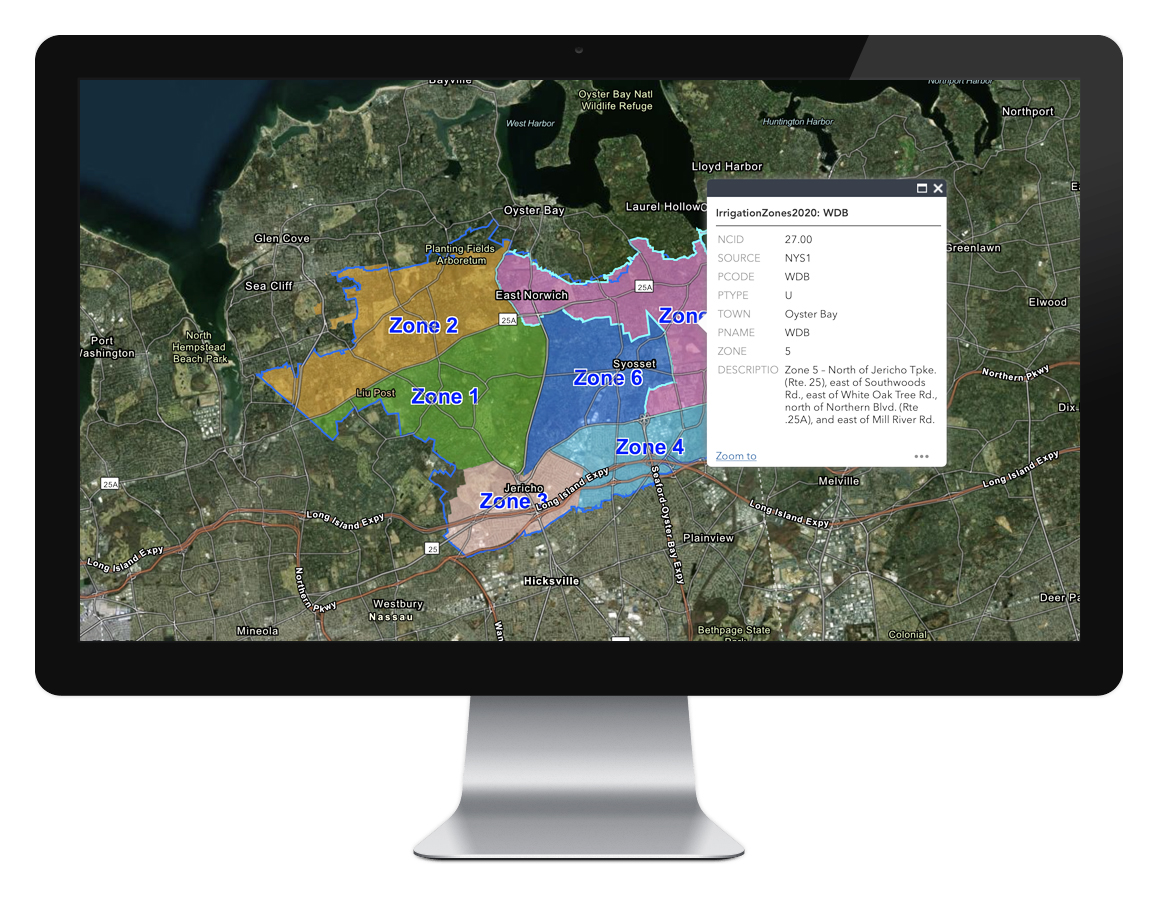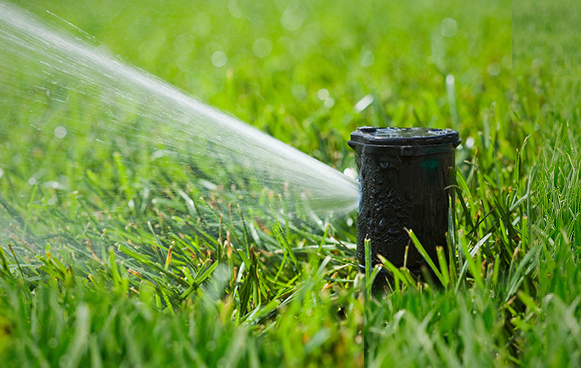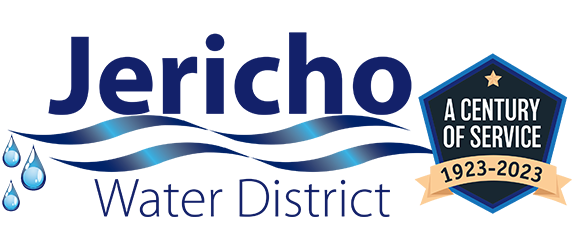In-Ground Sprinkler Systems
Attention: New Sprinkling Regulations in Effect
 Summer irrigation quadruples average monthly water demand. Three of our wells recently have been taken off-line and will remain off-line until early 2022. In order to meet the water needs of all our communities, summer irrigation demand must be reduced, especially at peak hours. Therefore, water conservation is a must. A new plan will be in effect permanently for the remainder of this lawn sprinkling season and going forward for future years.
Summer irrigation quadruples average monthly water demand. Three of our wells recently have been taken off-line and will remain off-line until early 2022. In order to meet the water needs of all our communities, summer irrigation demand must be reduced, especially at peak hours. Therefore, water conservation is a must. A new plan will be in effect permanently for the remainder of this lawn sprinkling season and going forward for future years.
When underground automatic lawn sprinklers are installed, maintained and operated properly it is easier to irrigate your lawn and plantings efficiently. A sprinkler system that gives you the most for your money is composed of equipment of high quality that is durable, easy to maintain and has the latest water conserving features.
 On average, the installation of an automatic lawn sprinkler results in a 300% to 400% increase in your water usage during the irrigation season (April to October) no matter the size of your property. To help control water usage without sacrificing your landscaping, you should discuss the best ways to water your lawn and plantings with both your sprinkler installer and your landscaper. Because turf and planting areas have different water requirements, sprinkler zone run times should be set differently for each. By delivering only as much water as is required, you are promoting healthier landscaping that is better able to survive the rigors of a hot, dry summer and is less prone to disease.
On average, the installation of an automatic lawn sprinkler results in a 300% to 400% increase in your water usage during the irrigation season (April to October) no matter the size of your property. To help control water usage without sacrificing your landscaping, you should discuss the best ways to water your lawn and plantings with both your sprinkler installer and your landscaper. Because turf and planting areas have different water requirements, sprinkler zone run times should be set differently for each. By delivering only as much water as is required, you are promoting healthier landscaping that is better able to survive the rigors of a hot, dry summer and is less prone to disease.
Click here for an article on Ways to Keep your Irrigation System Efficient.
Sprinkler systems are prone to leaks that may go undetected for some time because most sprinkler systems run during the early morning hours when leaks are not generally observed. These leaks waste water and increase the cost of your water bills, sometimes by hundreds of dollars. To reduce the amount of water and dollars wasted due to leaks, you should inspect your grounds and check your sprinkler systems on a regular basis.
Signs of leaks and other operational problems include:
- abnormally moist, soft or yellow spots in the lawn
- broken, clogged, dripping, sunken or tilted sprinkler heads
Electrical storms and power outages may disrupt the operation of your sprinkler system’s programmable time clock. This type of disruption may result in sprinklers turning on more frequently and/or for greater lengths of time. After an electrical storm or power outage, check your time clock settings to ensure they follow a schedule that meets your irrigation needs.
Click here to learn about Lightning Strikes and Sprinkler Systems
Frequently, time clocks are set for the same run times for the whole irrigation season, resulting in grass that is over-watered for much of the time. The water needs of grass change throughout the irrigation season and so should the amount of time for which your sprinklers are set. Remember, sprinklers should be controlled by a functioning rain sensor, which will stop your sprinklers from going on during times of significant rainfall.
Weekly Irrigation Requirements in Inches by Month

This is a general guide relative to the water use requirements of grass. Requirements vary with soil type, type of grass, temperature, amount of exposure to sun versus shade, general conditions of turf, presence of weeds, etc. For example: During the months of May and October, only half an inch of water per week is needed, whereas during July and August, 1.5 inches of water per week may be needed.
Remember these Jericho Water District Rules and Regulations
- Underground sprinkler systems installed prior to May 19, 1988 must be registered with the District.
- A permit is required for all new underground sprinkler systems or the alteration or addition to an existing underground sprinkler system.
- Underground sprinkler systems installed after May 20, 1988 must be equipped with a programmable time clock, a moisture sensor, an approved backflow prevention device and a separate curbstop control valve on the water supply line to the sprinkler system.
- Backflow prevention devices must be tested annually by a certified backflow tester.
- Nassau County Lawn Watering Ordinance 248-A 1987 mandates that irrigation is only permitted before 10:00am and after 4:00pm according to the following schedule:
- Consumers with even numbered houses may water on even numbered dates.
- Consumers with odd numbered houses may water on odd numbered dates.
- Consumers with no number may water on even numbered dates.
- Sprinkling is prohibited during periods of rainfall.
- Sprinkling is prohibited between November 1 and April 1.
- The Jericho Water District Board of Commissioners may change or otherwise limit sprinkling days and/or times as they deem necessary.
- The use of a hose sprinkler or irrigation system that directs a spray or flow of water onto sidewalks or roadways is prohibited.
- Hoses must have a spring-loaded shut-off nozzle that requires hand pressure on the valve to permit the flow of water.
- The Jericho Water District Board of Commissioners may enforce the provision of the ordinances, rules and regulations by imposing a fine in an amount not exceeding $250 for each violation.
Review all Jericho Water District recommendations for conserving water while irrigating your lawn on our Conservation page.


